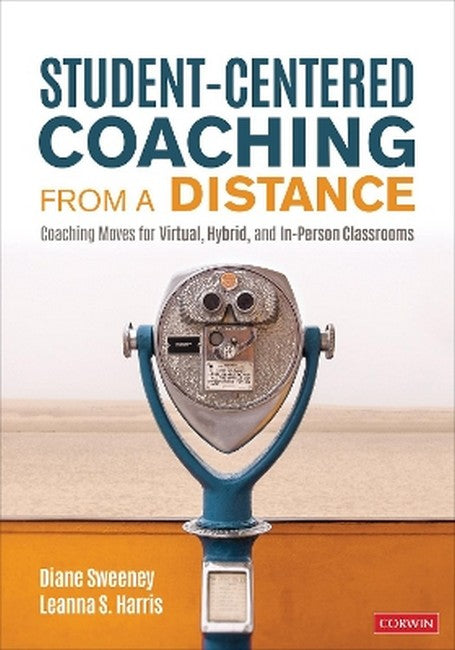Diane Sweeney has been an author and educational consultant since 1999. The author of Moves for Launching a New Year of Student-Centered Coaching (Corwin, 2022), Student-Centered Coaching from a Distance (Corwin, 2021), The Essential Guide for Student-Centered Coaching (Corwin, 2020), Leading Student-Centered Coaching (Corwin, 2018), and Student-Centered Coaching: The Moves (Corwin, 2016), Diane holds a longstanding interest in how adult learning translates to learning in the classroom. Diane holds a Bachelor's Degree from the University of Denver and a Master's in Bilingual and Multicultural Education from the University of Colorado, Boulder. After teaching and coaching in the Denver Public Schools, Diane served as a program officer at the Public Education & Business Coalition (PEBC) in Denver. Since then, she has become a respected voice in the field of coaching and professional development. Leanna Harris is the author of The Essential Guide for Student-Centered Coaching (Corwin, 2020) and Student-Centered Coaching:The Moves (Corwin, 2016). She has worked as a teacher, coach, and consultant across grades K-12 and currently works with Diane Sweeney Consulting to help schools and districts implement student-centered coaching. Her work is based upon the belief that professional development for teachers is most effective when it is grounded in outcomes for student achievement - for every child, every day. Leanna is a passionate skier and cyclist. She lives in Denver, Colorado with her husband and three kids.
Request Academic Copy
Please copy the ISBN for submitting review copy form
Description
Dedication About the Authors Introduction Chapter 1: Keep the Focus on Student Learning Move 1: Continue to Coach in a Way That's Student-Centered Move 2: Build Relationships from a Distance Move 3: Determine What Learning is Essential Move 4: Find New Ways to Address Gaps What Can We Carry Forward? Chapter 2: Mini Coaching Cycles: A Structure to Engage Teachers in This Moment Move 1: Document the Impact of Mini Coaching Cycles Move 2: Start by Determining the Outcome Move 3: Ground the Work in Different Forms of Student Evidence Move 4: Co-Teach the Lesson Synchronously or Asynchronously Move 5: Reflect and Co-Plan the Next Lesson What Can We Carry Forward? Chapter 3: Using Student Evidence from a Distance Move 1: Think in New Ways About Student Evidence Move 2: Know What You are Looking For Move 3: Look for and Build Upon Students' Strengths Move 4: Sort Evidence to Differentiate Instruction Across Platforms What Can We Carry Forward? Chapter 4: Co-Plan with Teachers and Teams Move 1: Leverage and Embrace Technology Move 2: Start from the Intended Learning Move 3: Co-Plan Units within an LMS Move 4: Co-Plan Lessons that Don't Leave Any Students Behind What Can We Carry Forward? Chapter 5: Co-Teach Virtually and In Person Move 1: Expand our View of Co-Teaching Move 2: Co-Assess Across Platforms Move 3: Co-Deliver Across Platforms Move 4: More Tips for Co-Teaching What Can We Carry Forward? Chapter 6: Coaching for Rigor and Engagement Move 1: Create Conditions for Independent Learning Move 2: Self-Assessment Is a Must Move 3: Cultivate Independent Learners Through Rigor and Independence Move 4: Coach Toward Deep Learning Experiences for Students What can we Carry Forward? Chapter 7: Building Partnerships in Challenging Times Move 1: Partner with the Principal Move 2: Partner with Teachers Move 3: Partner with other Coaches Move 4: Nurture Your School Culture What Can We Carry Forward? Resource A: Results-Based Coaching Tool Resource B: Coaching Logs for Full and Mini Coaching Cycles Resource C: Co-Planning Tools Resource D: Protocols and Agreements Resource E: Tools for Self-Assessment Resource F: Language for Coaching Resource G: Checklists for Coaching References Index

